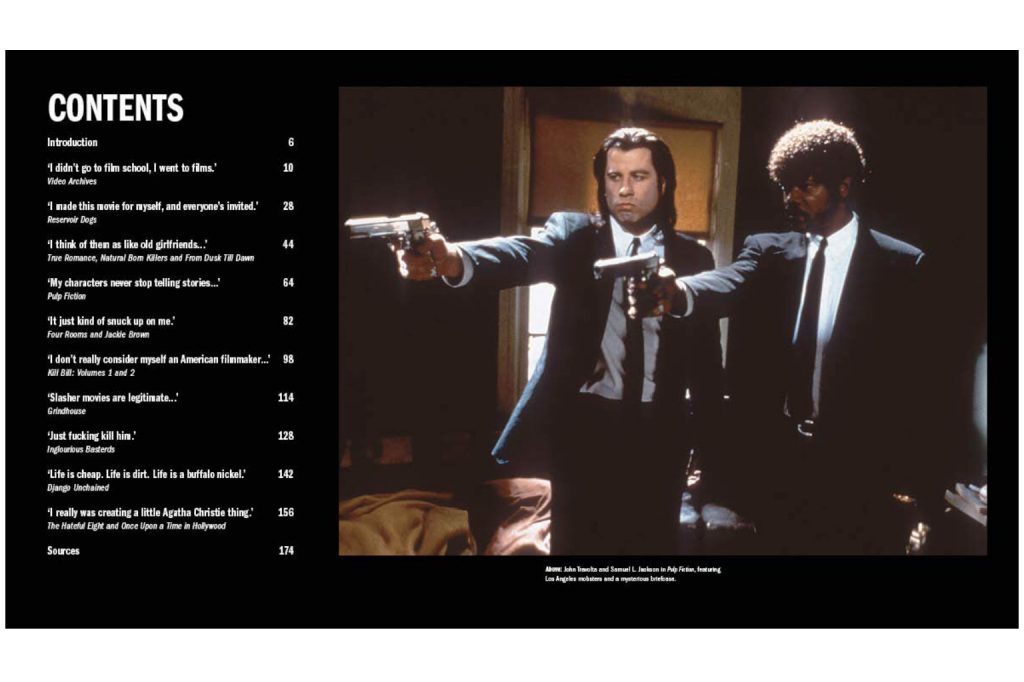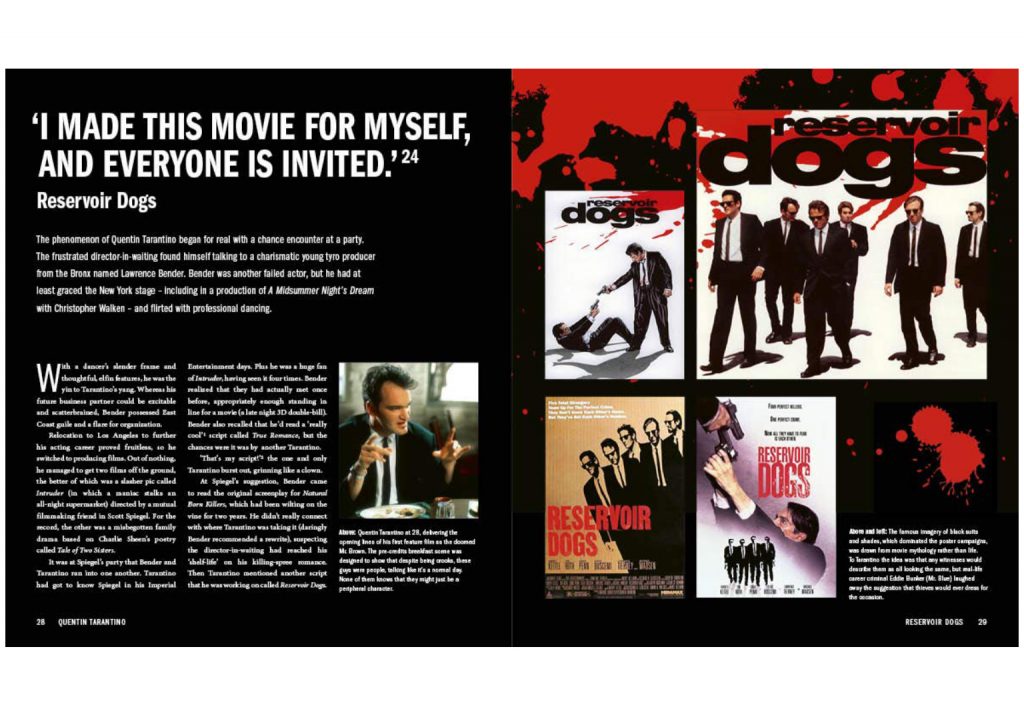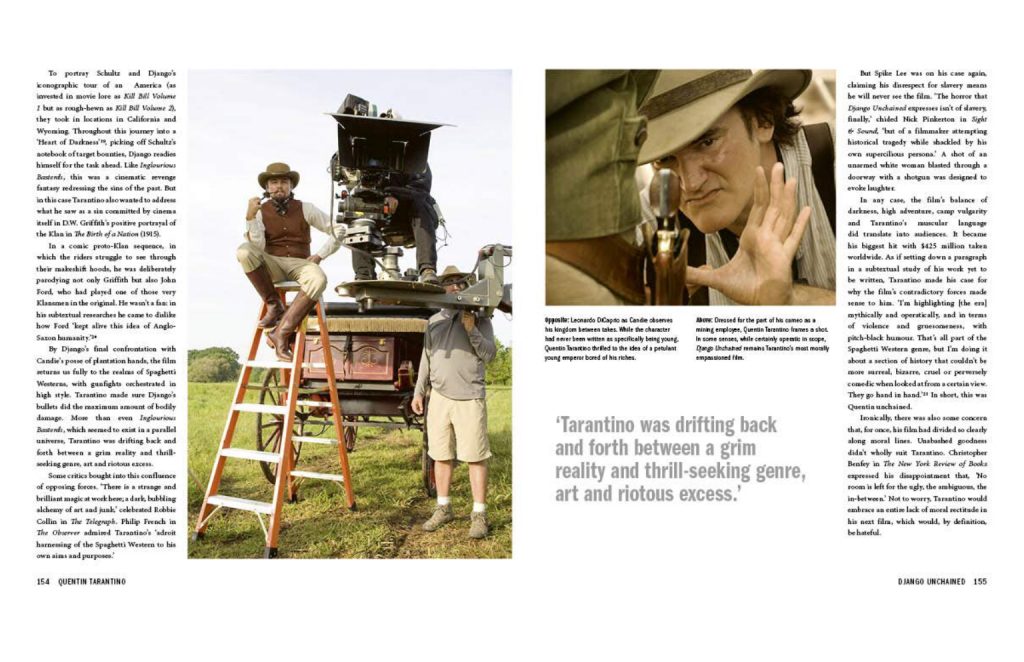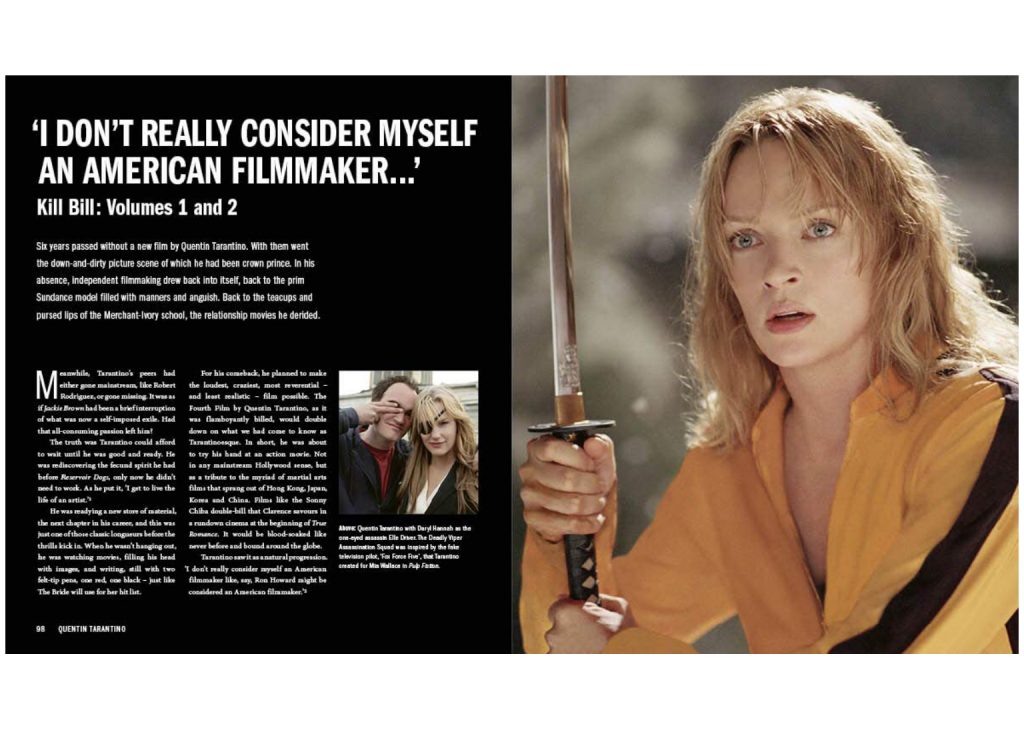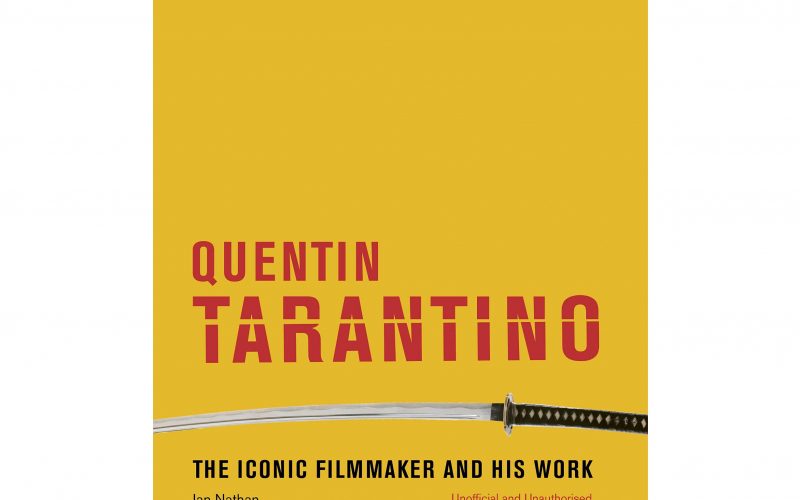Quentin Tarantino – The Iconic Filmmaker and his Work, Ian Nathan (2019)
As both an independent writer on the subject of film and a podcast co-producer, I have, over the past few years, dedicated a none too insignificant amount of my time to discussing and analysing the cinematic works of Quentin Tarantino. Having written brief essays on all of his films (as director at least) from his searing 1992 debut, Reservoir Dogs, up to and including his 2015 western whodunnit, The Hateful Eight, I have made my own small effort to chart his films and justify my own humble opinion of them. Tarantino is a writer/director who has courted much controversy throughout his career, in fact he’s almost revelled in it, nor is his a filmography without some admittedly minor missteps. Yet few could argue that he is one of the most important and influential filmmakers of his generation, maybe even the most important. His 1992 debut ushered in an explosive era of indie filmmaking that, whilst not as prominent as during its ‘90s heyday, nevertheless endures to this day.
The subject of this piece is not any additional take by myself on the man and his films but of a new book by author and respected film journalist, Ian Nathan. Titled Quentin Tarantino – The Iconic Filmmaker and his Work, it’s the latest in a series of similarly titled tomes by Nathan, previous entries focussing on the likes of Tim Burton and The Coen Brothers. Nathan has also authored books on the making of Alien and it’s sequels and James Cameron’s two Terminator films, both of which get my highest recommendation. It was as I was getting well into Nathan’s recent written work – Anything You Can Imagine: Peter Jackson and the Making of Middle Earth – that his latest book landed on my desk at Film ‘89 Towers. Putting aside his Peter Jackson/Middle Earth tome – and a hefty tome it is – was no easy feat as it’s far and away one of the most gripping and concise studies of the process and politics of filmmaking that I’ve ever read, and even though I’ve still not finished it, I would happily give it my highest recommendation to anyone with even a passing interest in The Lord of the Rings films and filmmaking in general, it really is that good. Meticulously researched and full of a level of rich detail that marks it out as something truly special, aided in no small part by the direct involvement of Jackson, it’s truly a book to be celebrated.
This latest book in comparison, by way of its size (a relatively brief 176 pages) and heavily illustrated styling, gives it more of the appearance of a coffee table book than an in-depth read. I also had some misgivings about it being unofficial and unauthorised – how would Nathan equal the level of detail of his Peter Jackson book without the direct involvement of Tarantino? The simple answer is that he doesn’t. But this isn’t as in-depth a study as that 576 page foray into the making of the Middle Earth films. But don’t let that detract you for a second as what this is is yet another fiendishly digestible book from Nathan, an author who has an uncanny knack of making his writing extremely efficient and devoid of fat. Every page and paragraph is necessary in charting Tarantino’s rise from his youth to his days working at Video Archives to present day (Once Upon A Time In… Hollywood is briefly covered) and nothing at all feels surplus to requirements. That seemingly brief read is no less a rich one than Nathan’s larger, longer books.
As is to be expected from the author, his latest work is meticulously researched and collates innumerable quotes from the director (and countless others) over the course of his career, all of which are properly sourced and referenced. As someone who has read almost every available source on Tarantino within reason, I found that this new book provided innumerable choice nuggets of trivia that I hadn’t previously known, such as the three month sabbatical that Tarantino took in Amsterdam to write Pulp Fiction (actually a touch-up to a long gestating script as opposed to a newly written one) which is mirrored in the film in Vincent Vega’s recent trip to the Dutch capital. We are even provided clarity as to the previously unknown nature of Vincent’s Amsterdam sojourn.
Being unauthorised allows a greater degree of objectivity and Nathan doesn’t shy away from levelling some well measured and deserved criticism to some of the revered director’s more questionable creative paths such as the ill-fated and poorly executed 1995 anthology piece, Four Rooms, of which Tarantino took a quarter of the directorial responsibly. Nathan has a clear reverence for Tarantino and as much as a charting of his career, the book is a loving celebration of the many aspects of his style that mark his films as the works of a true auteur, one who stands his ground as a creator and never buckles under pressure from studio heads, always sticking to his indie roots. He makes films he’d want to see and that they provide the rest of us with such rich entertainment is just a bonus. Tarantino’s phenomenal, encyclopaedic knowledge of and passion for film is conveyed throughout as Nathan charts the countless films, television shows and other media that impacted upon and influenced the director.
My one, almost absurdly minor gripe is Nathan’s refusal to question Tarantino’s numbering of his films. Kill Bill was split into two films which were released in consecutive years. It’s one continuous story (Tarantino’s typical chronology-mixing aside) told over two films. Is The Lord of the Rings (another continuous story) classed as one film? No. I rest my case. But this is such an inconsequential and consciously nitpicky criticism that my only reason for mentioning it is so as to attempt some semblance of balance to this otherwise glowing appraisal of yet another essential read from someone who has fast solidified himself as being one of the very best authors on the subject of film working today.
Film ‘89 Verdict – 9/10
| Hardcover: 176 pages Publisher: White Lion Publishing (October 1, 2019) Language: English ISBN-10: 1781317755 ISBN-13: 978-1781317754 Product Dimensions: 8.8 x 1.2 x 10.1 inches Shipping Weight: 1.2kg |
Quentin Tarantino – The Iconic Filmmaker and his Work is available now from Amazon and all good book retailers.
